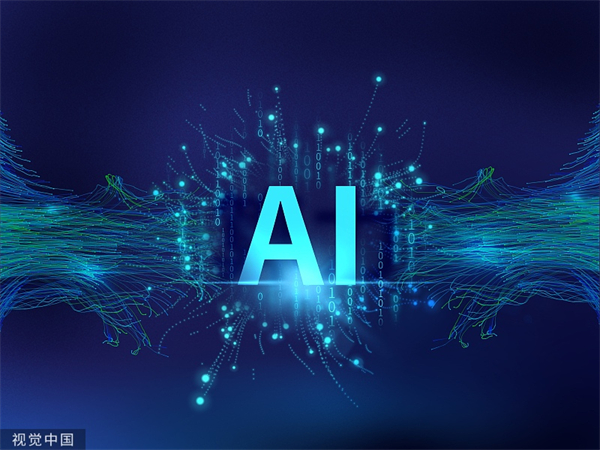



[Photo/VCG]
The potential threats posed by artificial intelligence are undoubtedly real.
The launch of ChatGPT has led to much reflection as it showed how rapidly the technology was developing. Its launch last November sparked fierce competition among tech giants to unveil similar tools. This has prompted much debate on the ethical and societal consequences of allowing the unbridled development of AI technology. Leaving aside the question of whether it poses an existential threat to humanity, there are also pertinent concerns about impersonation, while the fact that AI technologies can collect and analyze large amounts of personal data also raises issues related to data privacy and security. Moreover, there are fears that those with malign intent will be able to use the power of AI to develop more advanced cyberattacks.
Given the potential threats that artificial intelligence could pose to our society, it is of utmost importance to regulate the industry to ensure AI technology is employed for safe and beneficial purposes and is not used for destructive ends.
The latest voluntary commitments governing AI development that eight US high-tech companies, including Nvidia, IBM and Adobe, signed with the Joe Biden administration on Tuesday are a major step in that direction. Based on the AI safety accord, the companies agreed to conduct internal and external testing of AI systems before their public release, set up protocols to ensure users know when content is AI-generated, and share information with governments and civil society, among others, to safeguard against risks.
The commitments are similar to the earlier ones signed by seven US high-tech giants including Meta, Google and OpenAI in July as part of Washington's efforts to tackle the challenges this powerful technology is likely to bring to humanity. "We must be clear-eyed and vigilant about the threats emerging technologies can pose," Biden said.
The task of dealing with the AI-associated risks is enormous, thus prompting some countries to call for the creation of a new United Nations body to support the global efforts to govern AI. In response, UN Secretary-General Antonio Guterres recently said the UN is "the ideal place" for drawing up and overseeing the implementation of global standards for AI governance.
China, which Tesla CEO Elon Musk believes is "in a strong position" when it comes to AI development, is also among the first countries in the world to have worked out policies on AI regulation. The country has always supported governance of the technology in collaboration with the international community to ensure that it is safe, and has called for the formation of an international governance framework and standardized norms with a consensus among nations.
It would serve the interests of both countries as well as the rest of the world if China and the US, as major powers in terms of AI development and applications, can set aside their differences and work together to enhance cooperation on AI regulation.